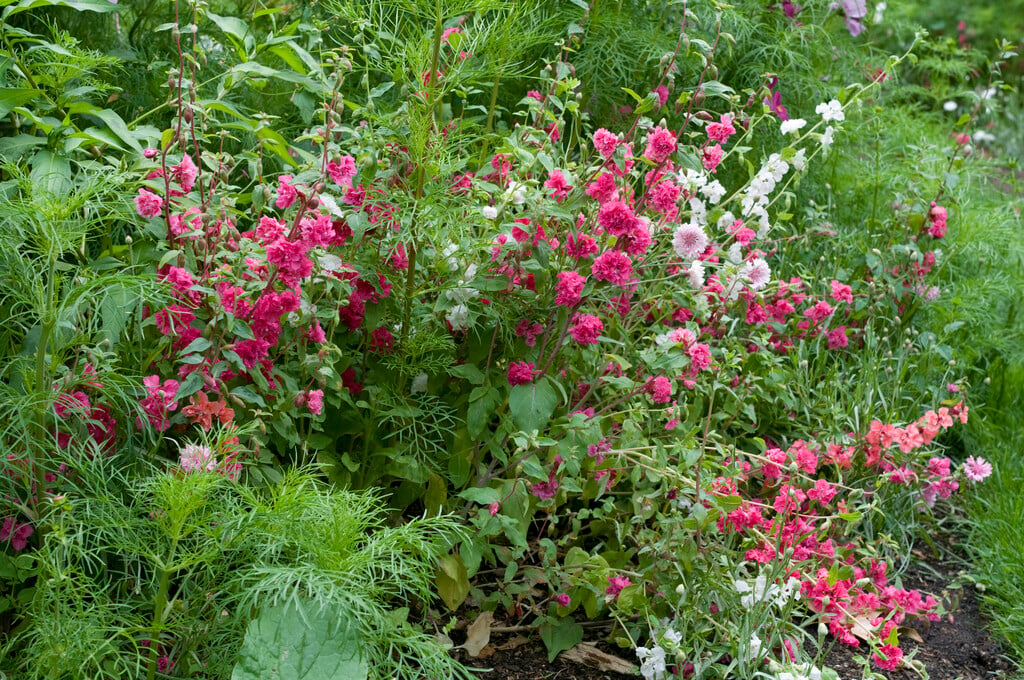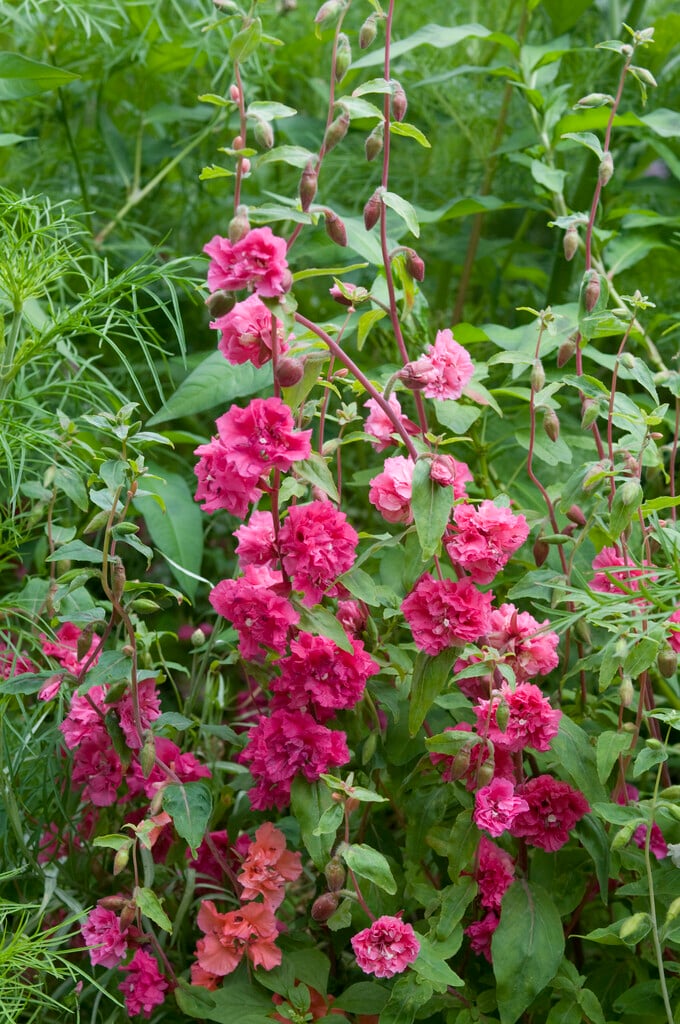Clarkia unguiculata
clarkia
An upright, branching annual up to 1m high, with slender stems bearing sparse lance-shaped leaves. In late spring and early summer, flowers are produced from the upper leaf axils, with four widely-spaced, paddle-shaped petals in shades of pink, purple, red and occasionally white, and prominent stamens tipped with bright red anthers
Synonyms
Clarkia elegansSize
Ultimate height
0.5–1 metresTime to ultimate height
1 yearUltimate spread
0.1–0.5 metresGrowing conditions
Moisture
Moist but well–drained, Well–drainedpH
AcidColour & scent
| Stem | Flower | Foliage | Fruit | |
| Spring | Pink Purple Red White | Green | ||
|---|---|---|---|---|
| Summer | Pink Purple Red White | Green | ||
| Autumn | ||||
| Winter |
Position
- Full sun
- Partial shade
Aspect
East–facing or South–facing or West–facing
Exposure
Exposed or Sheltered Hardiness
H6Botanical details
- Family
- Onagraceae
- Native to GB / Ireland
- No
- Foliage
- Deciduous
- Habit
- Columnar upright
- Genus
Clarkia are slender annuals with simple leaves and showy funnel-shaped or bowl-shaped flowers in lax racemes in summer
- Name status
Correct
- Plant range
- California
How to grow
Cultivation
Grow in moderately fertile, slightly acid soil in sun or part shade. Some drought tolerance, dislikes hot and humid conditions. Rich soils will encourage growth of foliage at the expense of flowers
Propagation
Propagate by seed, sown in-situ in early spring or autumn, avoid transplanting. Protect autumn-sown seedlings over winter with cloches
Suggested planting locations and garden types
- Cottage and informal garden
- Gravel garden
- Wildflower meadow
- Wildlife gardens
- City and courtyard gardens
- Coastal
- Cut flowers
- Flower borders and beds
Pruning
Cut back after flowering
Pests
Generally pest-free
Diseases
May be susceptible to foot, root and stem rot and downy mildews
Love gardening
Sign up to receive regular gardening tips, inspiration, offers and more
View our Privacy Policy
Get involved
The Royal Horticultural Society is the UK’s leading gardening charity. We aim to enrich everyone’s life through plants, and make the UK a greener and more beautiful place.

